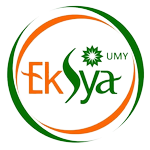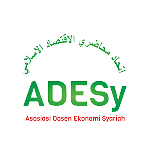The Potential of Sukuk for Financing Oil and Gas Sector in Nigeria
DOI:
https://doi.org/10.18196/jiebr.v2i2.66Keywords:
Sukuk Financing, Upstream, Downstream, Oil & Gas, JEL Classification: G17, G23, G31, G38Abstract
Nigeria has promising investment opportunities in the up and downstream sectors of the oil and gas industry that need financing. In the upstream, there are an estimated 37.2 Billion proven oil reserves and 182 Trillion cubic feet of natural gas. New investment opportunities are being developed, and individual and organizational investors need to finance their activities by purchasing drilling equipment and financing their infrastructures and storage facilities. Sukuk financing became a potential investment opportunity that could significantly address the upstream and downstream oil and gas sector and restore the glory of refineries in the country. There are currently three petroleum refineries in Nigeria with a stated capacity of 438 750. Perhaps the refineries are obsolete and bedeviled by poor management and turnaround maintenance due to the lack of funding. The study examines the potential of Sukuk financing oil and gas in the sector in Nigeria. The study employed Structural Equation Modeling to test the respondents' perspectives on the proposed model. Findings predict that the government may diversify and look for an alternative for funding that attracts more investors to participate in Sukuk financing. Future research is encouraged to use quantitative assessment methods to assess funding priorities between the Upstream, middle and downstream petroleum sectors.
References
Adebayo, J. O. (2018). Oil and gas contracts: a law in context analysis using Nigeria as a case study.
Adeola, A. O., Akingboye, A. S., Ore, O. T., Oluwajana, O. A., Adewole, A. H., Olawade, D. B., & Ogunyele, A. C. (2021). Crude oil exploration in Africa: socioeconomic implications, environmental impacts, and mitigation strategies. Environment Systems and Decisions, 1-25.
Albert, O., Amaratunga, D., & Haigh, R. (2019). An investigation into root causes of sabotage and vandalism of pipes: A major environmental hazard in Niger Delta, Nigeria. In ASCENT Festival 2019: International Conference on Capacity Building for Research and Innovation in Disaster Resilience, 22-37 National Science Foundation of Sri Lanka.
Amuda-Kannike, A., Abila, S., & Abila, D. (2020). Oil and Gas local Contents in Nigeria, Ghana and Brazil: A Comparative Analysis of Legal and Policy Frameworks. International Journal of Comparative Law and legal Philosophy (IJOCLLEP), 2(3).
Azmat, S., Skully, M., & Brown, K. (2017). The (little) difference that makes all the difference between Islamic and conventional bonds. Pacific-Basin Finance Journal, 42(1), 46-59.
Banna, H., & Alam, M. R. (2021). Impact of digital financial inclusion on ASEAN banking stability: implications for the post-Covid-19 era. Studies in Economics and Finance, 38(2), 504-523.
Bisbe, J., & Malagueño, R. (2015). How control systems influence product innovation processes: examining the role of entrepreneurial orientation. Accounting and Business Research, 45(3), 356-386.
Burns, B. J. (2020). Aging Pipeline Infrastructure in the United States: How do a changing policy mix, issues of energy justice, and social media communication impact future risk analysis? (Doctoral dissertation, Michigan Technological University).
Chelminski, K. (2018). Fossil fuel subsidy reform in Indonesia. The politics of fossil fuel subsidies and their reform, 193-211.
Choubineh, A., Wood, D. A., & Choubineh, Z. (2020). Applying separately cost- sensitive learning and Fisher's discriminant analysis to address the class imbalance problem: A case study involving a virtual gas pipeline SCADA system. International Journal of Critical Infrastructure Protection, 29, 100357.
Cumming, D. J., Johan, S., & Pant, A. (2019). Regulation of the crypto-economy: Managing risks, challenges, and regulatory uncertainty. Journal of Risk and Financial Management, 12(3), 126.
Darmansyah, D., Fianto, B. A., Hendratmi, A., & Aziz, P. F. (2020). Factors determining behavioral intentions to use Islamic financial technology: Three competing models. Journal of Islamic Marketing, 12(4), 794-812.
Delle Foglie, A., Panetta, I. C., Boukrami, E., & Vento, G. (2021). The impact of the Blockchain technology on the global Sukuk industry: smart contracts and asset tokenisation. Technology Analysis & Strategic Management, 1-15.
Ditta, A., Figueroa, O., Galindo, G., & Yie-Pinedo, R. (2019). A review on research in transportation of hazardous materials. Socio-Economic Planning Sciences, 68, 100665.
Echchabi, A., Aziz, H. A., & Idriss, U. (2018). The impact of Sukuk financing on economic growth: the case of GCC countries. International Journal of Financial Services Management, 9(1), 60-69.
Eris, I. (2021). Historical origins of Sukuk as a popular instrument in modern Islamic Finance. Journal of Islamic Law Studies, (38).
Farhan, M. A., & Purwanto, W. W. (2020, May). The potential utilization options of small- scale associated gas flaring on the upstream process production offshore platform. Techno-economic assessment. In AIP Conference Proceedings, 2230 (1), 050006. AIP Publishing LLC.
Fombad, C. M. (2020). Taming executive authoritarianism in Africa: Some reflections on current trends in horizontal and vertical accountability. Hague Journal on the Rule of Law, 12(1), 63-91.
Frick, T. A. (2019). Virtual and cryptocurrencies—regulatory and anti-money laundering approaches in the European Union and in Switzerland. In Era Forum, 20(1), 99-112 Springer Berlin Heidelberg.
Gelos, R. G., Sahay, R., & Sandleris, G. (2011). Sovereign borrowing by developing countries: What determines market access?. Journal of international Economics, 83(2), 243-254.
Hendratni, T. W., Soemarsono, D. W., & Harsono, H. (2021). Analysis of Sukuk Role in Government Investment. Journal of Public Auditing and Financial Management, 1(2), 59-70.
Hendratni, T. W., Soemarsono, D. W., & Harsono, H. (2021). Analysis of Sukuk Role in Government Investment. Journal of Public Auditing and Financial Management, 1(2), 59-70.
Holeczek, N. (2019). Hazardous materials truck transportation problems: A classification and state of the art literature review. Transportation research part D: transport and environment, 69, 305-328.
Humphries, B. E. (2019). Critical infrastructure: emerging trends and policy considerations for congress. R45809. Congressional Research Service, Washington, DC.
Itsekor, L. U. (2020). A need for investment in Nigerian crude oil refining and infrastructures: a panacea to refined petroleum shortages and economic growth. Archives of Business Review– 8(4).
Israeli, O. (2007). A Shapley-based decomposition of the R-square of a linear regression. The Journal of Economic Inequality, 5(2), 199-212.
Jaafar, A. Z., & Brightman, M. (2022). From Structure to Purpose: Green and Social Narratives, and the Shifting Morality of Islamic Finance in Kuala Lumpur. Sustainability, 14(9), 5433.
Kang, H. C., Lee, D. W., & Park, K. S. (2010). Does the difference in valuation between domestic and foreign investors help explain their distinct holdings of domestic stocks?. Journal of Banking & Finance, 34(12), 2886-2896.
Khadzhyradieva, S., Slukhai, S., & Rachynskyi, A. (2020). Public administration in Ukraine: adjusting to European standards. Network of Institutes and Schools of Public Administration in Central and Eastern Europe. The NISPAcee Journal of Public Administration and Policy, 13(1), 81-108.
Khan, A., Hussain, J., Bano, S., & Chenggang, Y. (2020). The repercussions of foreign direct investment, renewable energy and health expenditure on environmental decay? An econometric analysis of B&RI countries. Journal of Environmental Planning and Management, 63(11), 1965-1986.
Khan, N., Dilshad, S., Khalid, R., Kalair, A. R., & Abas, N. (2019). Review of energy storage and transportation of energy. Energy Storage, 1(3), e49.
Kheraj, S. (2020). A history of oil spills on long-distance pipelines in Canada. Canadian Historical Review, 101(2), 161-191.
Kline, R. B. (2015). Principles and practice of structural equation modeling. Guilford publications.
Lahsasna, A., Hassan, M. K., & Ahmad, R. (2018). Types of Sukuk, their classification and structure in Islamic capital market. In Forward lease Sukuk in Islamic capital markets. 49-85. Palgrave Macmillan, Cham.
Laila, N., & Anshori, M. (2021). The development of sovereign sukuk in Indonesia. Review of International Geographical Education Online, 11(4), 390-397.
Lam, P. T., & Law, A. O. (2018). Financing for renewable energy projects: A decision guide by developmental stages with case studies. Renewable and Sustainable Energy Reviews, 90, 937-944.
Manan, F. N. A. (2019). Sukuk Return Purification Methods: A Review. Journal of Social Science and Humanities, 2(6), 19-28.
Mat Radzi, R., & Muhamed, N. A. (2019). Are sukuk debt or equity? A classification of sukuk by regulatory bodies and credit rating agencies. Journal of Emerging Economies and Islamic Research, 7(2), 1-10.
Mensi, W., Hammoudeh, S., Tiwari, A. K., & Al-Yahyaee, K. H. (2020). Impact of Islamic banking development and major macroeconomic variables on economic growth for Islamic countries: Evidence from panel smooth transition models. Economic Systems, 44(1), 100739.
Merem, C., Twumasi, Y., Wesley, J. K., Isokpehi, P., Fageir, S., Crisler, M., ... & Nwagboso, E. (2018). Assessing the effects of fuel based lighting: The case of kerosene use and disasters in Nigeria. Public Health Res, 8(1), 6-23.
Mills, G. E. (2019). Privatisation in Jamaica, Trinidad and Tobago. In Privatisation in developing countries, 378-402. Routledge.
Minton, C. (2020). A Partner in Progress? Shell-BP’s Development Role in Nigeria During the Transition to Independence. In The Business of Development in Post-Colonial Africa, 157-182). Palgrave Macmillan, Cham.
Moghaddam, H., & Wirl, F. (2018). Determinants of oil price subsidies in oil and gas exporting countries. Energy Policy, 122, 409-420.
Muhammad, T., & bin Ngah, B. (2020). Modeling Debt And Equity Crowdfunding Based On Murabahah, Musharakah And Mudarabah: Trust And Awareness. Ikonomika: Jurnal Ekonomi dan Bisnis Islam, 5(2), 271-296.
Muhammad, T., Dauda, S. A., & Mamman, D. (2018). The contemporary Islamic banking system (Jaiz bank) in tackling financial exclusion in Nigeria. International journal of Islamic economics and finance studies, 4(1), 24-40.
Muhammad, T., Ngah, B. B., & Obad, A. S. F. M. (2022). Financial Exclusion in Northern Nigeria: A Lesson From the Developed Countries. AFEBI Islamic Finance and Economic Review, 7(01), 45-62.
Muhammad, T., & Salisu, A. (2019). Islamic Bank and Economic Growth in Nigeria and Malaysia Similarities. International Journal of Accounting, 4(22), 10-22.
Nasreen, S., Naqvi, S. A. A., Tiwari, A. K., Hammoudeh, S., & Shah, S. A. R. (2020). A wavelet-based analysis of the co-movement between Sukuk bonds and Shariah stock indices in the GCC region: Implications for risk diversification. Journal of Risk and Financial Management, 13(4), 63.
Norouzi, N., & Fani, M. (2022). Globalization and the oil market: An overview on considering petroleum as a trade commodity. Journal of Energy Management and Technology, 6(1), 54-62.
Ogbuigwe, A. (2018). Refining in Nigeria: history, challenges and prospects. Applied Petrochemical Research, 8(4), 181-192.
Ogwang, T., & Vanclay, F. (2021). Cut-off and forgotten?: Livelihood disruption, social impacts and food insecurity arising from the East African Crude Oil Pipeline. Energy Research & Social Science, 74, 101970.
Olorunfemi, M. (2020). Nigeria and the uncertain future of the oil market. In Handbook of OPEC and the Global Energy Order, 78-86. Routledge.
Olujobi, O. J. (2021). Deregulation of the downstream petroleum industry: An overview of the legal quandaries and proposal for improvement in Nigeria. Heliyon, 7(4), e06848.
Olujobi, O. J., Olarinde, E. S., & Yebisi, T. E. (2022). The Conundrums of Illicit Crude Oil Refineries in Nigeria and Its Debilitating Effects on Nigeria’s Economy: A Legal Approach. Energies, 15(17), 6197.
OLUJOBI, O. J., OLUJOBI, O. M., & UFUA, D. E. (2020). A critical appraisal of legal framework on deregulation of the downstream sector of the Nigerian Petroleum Industry.
Omozue, M. (2022). The Destruction of Illegal Refineries on the Niger Delta ENVIRONMENT: AN APPRAISAL. LAW AND SOCIAL JUSTICE REVIEW, 2(2).
Puzzolo, E., Zerriffi, H., Carter, E., Clemens, H., Stokes, H., Jagger, P., ... & Petach, H. (2019). Supply considerations for scaling up clean cooking fuels for household energy in lowâ€and middleâ€income countries. GeoHealth, 3(12), 370-390.
Rehak, D., Senovsky, P., Hromada, M., & Lovecek, T. (2019). Complex approach to assessing resilience of critical infrastructure elements. International journal of critical infrastructure protection, 25(1), 125-138.
Romsom, E. (2022). Global oil theft: impact and policy responses (No. 2022/16). WIDER Working Paper.
Saad, N. M., Haniff, M. N., & Ali, N. (2016). Long-Term Sukuk Default Payment with its Determinants in Malaysia: A Robust Model Approach. In International Symposium & Exhibition on Business and Accounting 2016 (ISEBA 2016).
Salaudeen, J. A. (2021). Sukuk: Potential for Infrastructural Development in Nigeria. Advanced International Journal of Banking, Accounting, and Finance, 3(7), 104- 113.
Saripudin, K. N., Mohamad, S., Razif, N. F. M., Abdullah, L. H., & Rahman, N. N. A. (2012). Case study on Sukuk musharakah issued in Malaysia. Middle-East Journal of Scientific Research, 12(2), 168-175.
Schaffitzel, F., Jakob, M., Soria, R., Vogt-Schilb, A., & Ward, H. (2020). Can government transfers make energy subsidy reform socially acceptable? A case study on Ecuador. Energy Policy, 137, 111120.
Seth, N., Singhania, M. and Siddiqui, S. (2022), "Modeling returns of sukuk and related indices with system GMM: evidence from the MENA region", International Journal of Islamic and Middle Eastern Finance and Management, Vol. 15 No. 4, pp. 699-716. https://doi.org/10.1108/IMEFM-07-2018-0222
Sondakh, R. (2019). The effect of dividend policy, liquidity, profitability and firm size on firm value in financial service sector industries listed in Indonesia stock exchange 2015-2018 period. Accountability, 8(2), 91-101.
Surachman, E.N., Hermawan, R.P., Handayani, D. and Astuti, E. (2022), "Evaluation of Sovereign Sukuk as a government financing instrument with stakeholder theory: a moving forward policy from Indonesia’s experience", Journal of Islamic Accounting and Business Research, Vol. ahead-of-print No. ahead-of- print. https://doi.org/10.1108/JIABR-03-2022-0066
Tshinu, G. M. (2022). Unpacking the Resource Curse and Realism Challenges on Economic Development in the Democratic Republic of Congo (DRC): Case of Gecamines. In Handbook of Research on Resource Management and the Struggle for Water Sustainability in Africa, 318-336. IGI Global.
Ugwueze, M. I., & Onuoha, F. C. (2020). Hard versus soft measures to security: Explaining the failure of counter-terrorism strategy in Nigeria. Journal of Applied Security Research, 15(4), 547-567.
Ukiwo, U. (2018). Governance Regimes of Oil in Nigeria: Issues and Challenges. Centre for Research on Peace and Development (CRPD) Working Paper Series.
Umeji, G., & Eleanya, E. (2021). Assessing the Impact of Fuel Subsidy Removal in Nigeria on the Poor in the COVID-19 Era. SERBD-International Journal of Multidisciplinary Sciences.
Watts, M. J. (2021). Space, Scale, and the Global Oil Assemblage: Commodity Frontiers in Resource Peripheries. In Resource Peripheries in the Global Economy, 145-182. Springer, Cham.
Yu, H. (2017). Infrastructure connectivity and regional economic integration in East Asia: Progress and challenges. Journal of Infrastructure, Policy and Development, 1(1), 44- 63.
Zogning, F. (2017). Comparing financial systems around the world: capital markets, legal systems, and governance regimes. Economics, Management & Financial Markets, 12(4).
Downloads
Published
How to Cite
Issue
Section
License
Copyright (c) 2022 Journal of Islamic Economic and Business Research

This work is licensed under a Creative Commons Attribution-NonCommercial 4.0 International License.
Journal of Islamic Economic and Business Research has CC-BY NC or an equivalent license as the optimal license for the publication, distribution, use, and reuse of scholarly work for non-commercial purpose. The non-commercial use of the article will be governed by the Creative Commons Attribution license as currently displayed on Creative Commons Attribution-NonCommercial 4.0 International License
Creative Commons License




